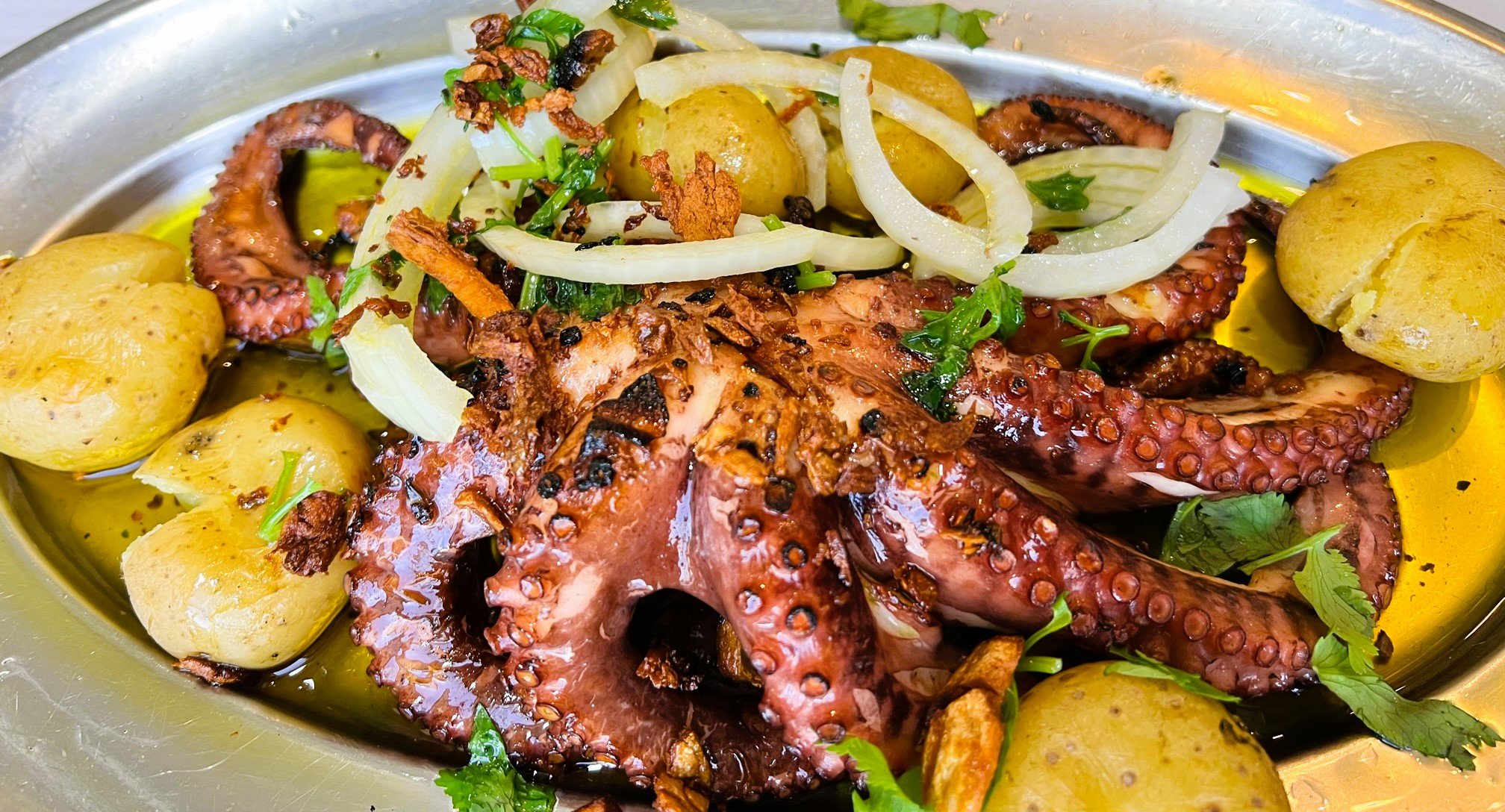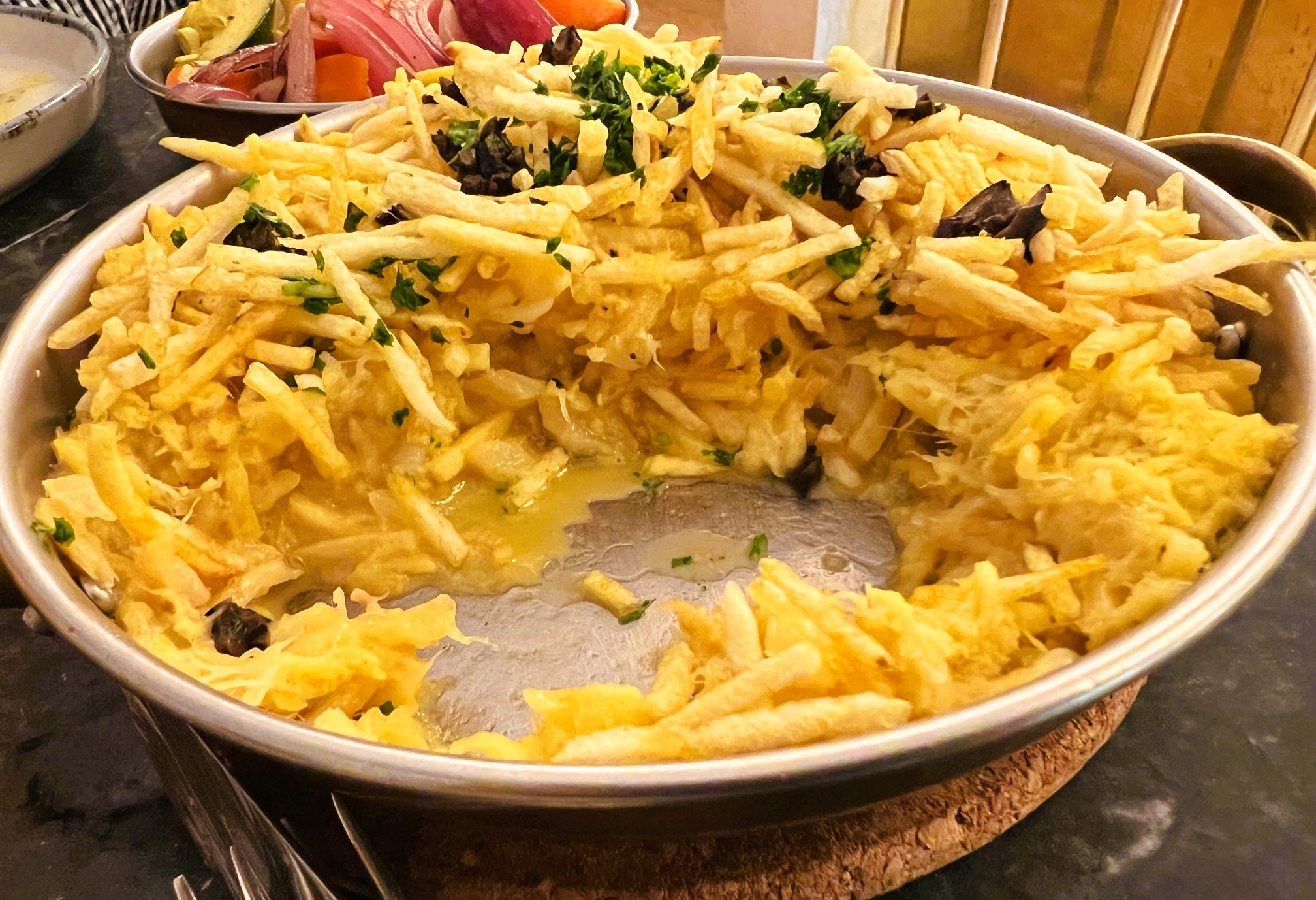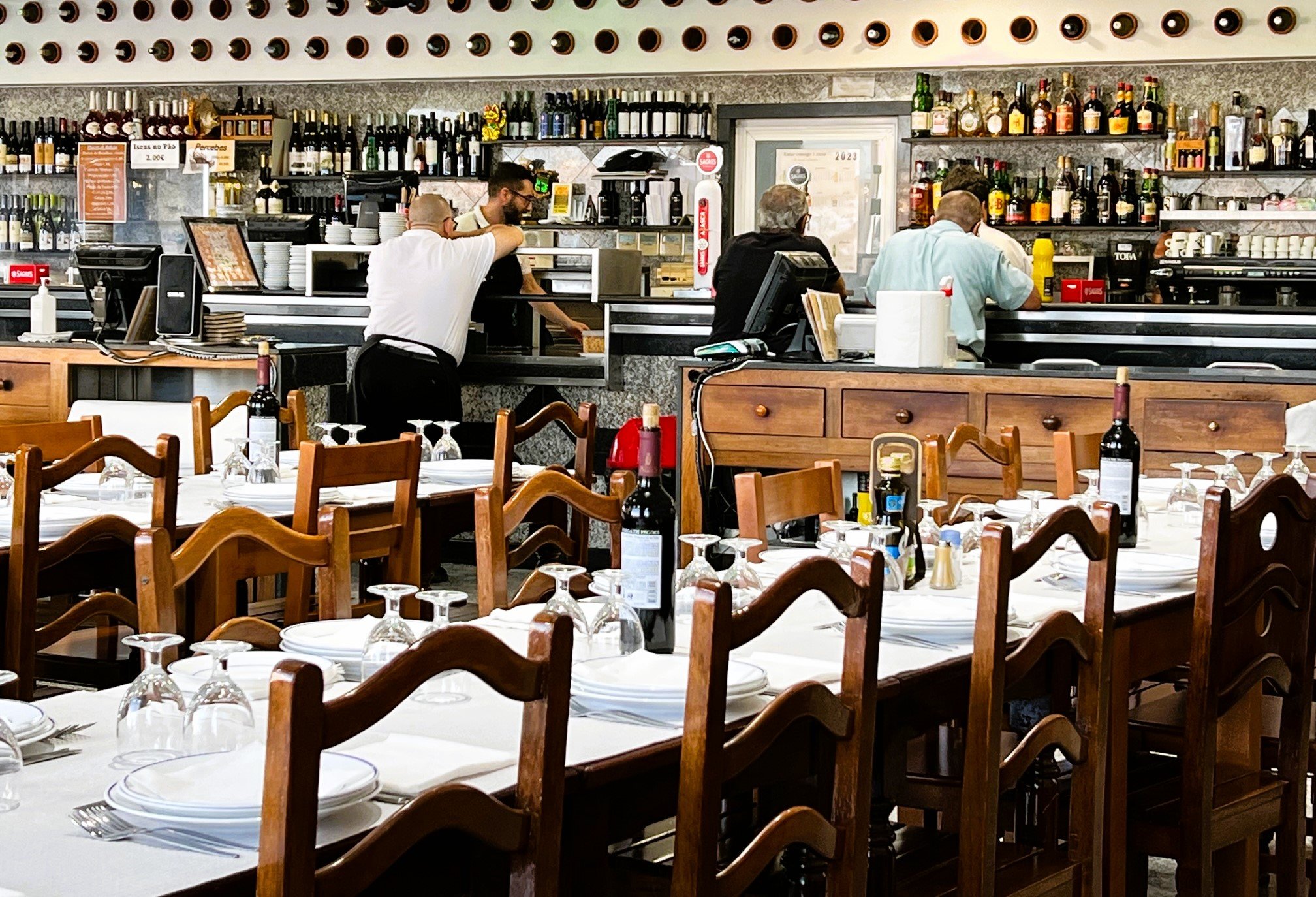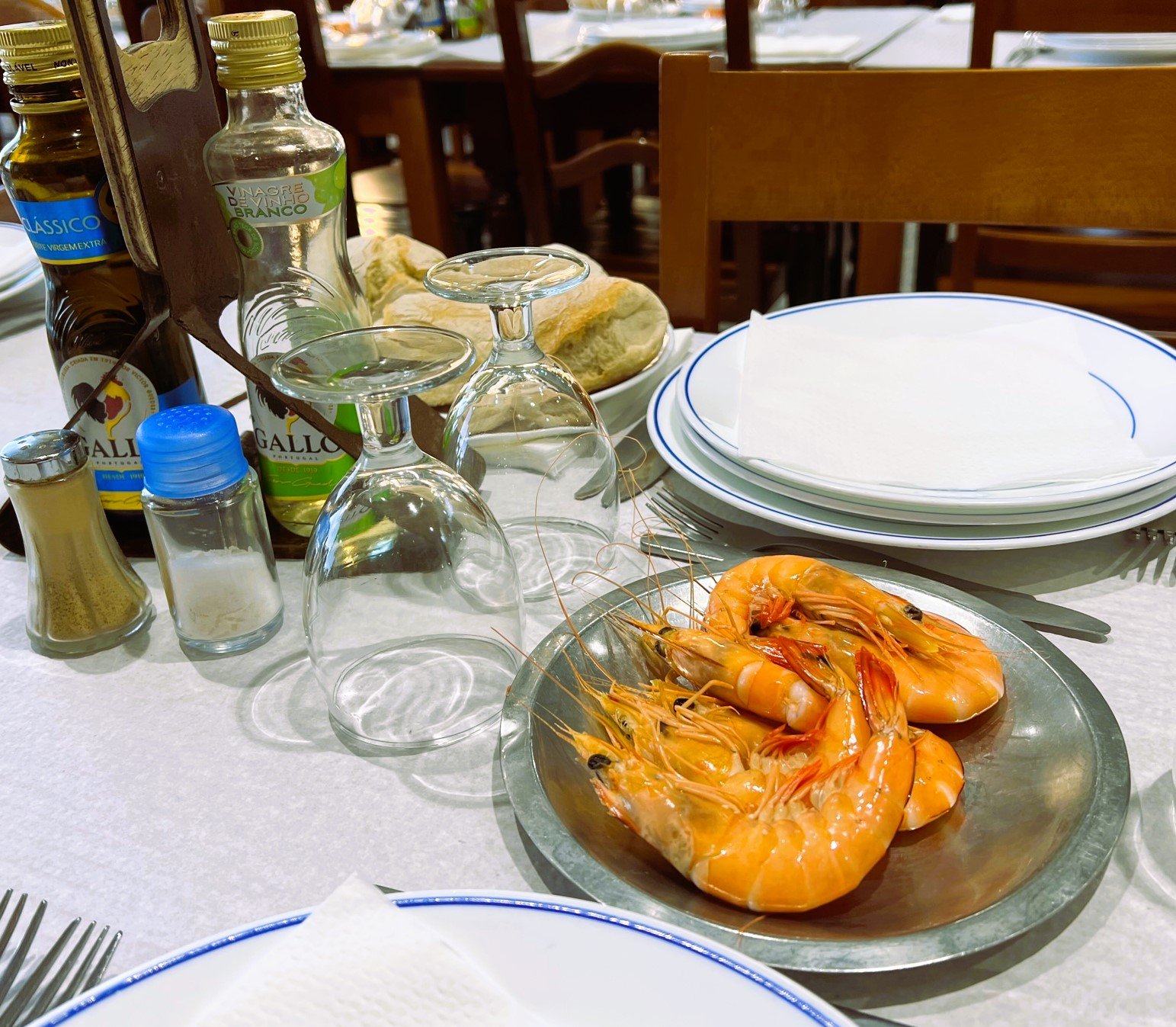In Cod We Trust
A fictional travelogue; four minutes to read.
Octopus is why my wife and I are crossing Lisbon’s Tagus River. We’re aboard the Sintrense—a rusting but reliable ferryboat—bound for Cacilhas, a nondescript tourist trap of a town with one well-regarded fish restaurant.
The scorching sun flattens and polishes the water to a high gloss. The only waves are the ferry’s churning white wake. The salt air breezes away my breakfast of coffee and pastels de nata, clearing my palette for another meal.
For a hundred years the Farol restaurant has been cooking fresh fish the way fresh fish was meant to be cooked. Live lobster, crab and gooseneck barnacle tanks line the entryway. Along one wall a blue tile mural stretching twenty-five feet depicts an 1870’s seaport. Slow-moving waiters look old enough to have been hired when the restaurant first opened. The menu has enough fish choices to empty the Atlantic Ocean.
Once we’re seated, I announce, “This place looks fishy.” My wife who takes reading a menu seriously sends a withering fisheye in my direction.
I order polvo—a grilled whole octopus smothered in olive oil, onions, garlic cloves, potatoes. A bottle of Vinho Verde (green wine) is light, young, fresh—the perfect pairing. Before I realize what I have done, the entire octopus and all its side dishes are on the sea floor of my stomach.
That night in my hotel room, recovering from my gluttony, the movie title My Octopus Teacher wills me to watch it. It tells the true story of a scuba diver who discovers and studies an octopus living in a kelp forest. Diver and sea-dweller form a bond more emotionally satisfying than hanging out with some of the teachers at my high school.
By the time the movie credits are playing, my appetite for octopus has soured. It’s as if Neptune himself was the mover-maker.
With self-loathing embarrassment over my culinary callousness, I inform my wife, “I’m swearing off octopus. A living thing is a living thing.”
“What are your plans for saving hamburgers?” she queries. “Oh, sorry, I meant cows.” Empathy—and its tentacled partner guilt—is inescapably on every carte du jour.
The next day, the dinner hour launches another exploration of Lisbon’s restaurant scene. I settle into Trindade’s dining room, a converted stone monastery wallpapered with blue and yellow tile murals in 19th century motifs. The house specialty is seafood accompanied by a potent beer brewed from a monk’s recipe as old as the abbey.
Portuguese chefs boast of 365 codfish recipes—one for each day of the year. The Portuguese consume twenty percent of the world’s commercial codfish catch. Over seventy pounds per person per year.
I decide to try Portugal’s signature seafood dish, Bacalhau à Brás—a scramble of salted cod, onions and eggs topped with shoestring fries, fresh chopped parsley and black olives. At the first forkful, I can taste the history of why Portuguese seamen trawled the treacherous North Sea for codfish. Bacalhau à Brás is worth risking someone else’s life for.
Lingering over my meal, and putting off the hilly walk on Lisbon’s tiled streets to my hotel, I have a revelation. The alternative to murdering an octopus is murdering a codfish.
Until the movie My Codfish Teacher is filmed, I’m happy as a clam.





